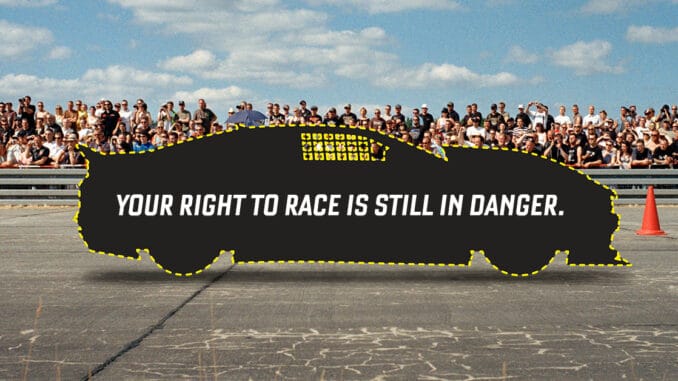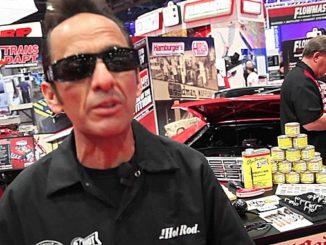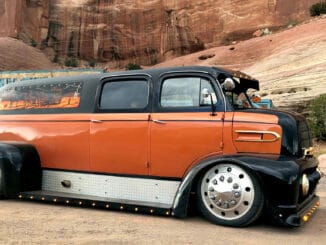
The Recognizing the Protection of Motorsports Act (RPM Act) is common-sense, bipartisan legislation to protect Americans’ right to convert street vehicles (cars, trucks, and motorcycles) into dedicated racecars and the motorsports-parts industry’s ability to sell products that enable racers to compete. The bill clarifies that it is legal to make emissions-related changes to a street vehicle to convert it into a racecar used exclusively in competition. It also confirms that it is legal to produce, market, and install racing equipment.
The RPM Act reverses the EPA’s interpretation that the Clean Air Act does not allow a motor vehicle designed for street use—including a car, truck, or motorcycle—to be converted into a dedicated racecar. This American tradition was unquestioned for nearly 50 years until 2015. The EPA decided that converted vehicles must remain emissions-compliant, even though they are no longer driven on public streets or highways. Although the EPA did not finalize the proposed rule, the agency still maintains that modifying the emission system of a motor vehicle to convert it for racing is illegal. Manufacturing, selling, and installing race parts for the converted vehicle would also be a violation. The EPA has also announced that enforcement against high-performance parts—including superchargers, tuners, and exhaust systems—is a top priority.
Converting street vehicles into dedicated race vehicles is an American tradition dating back decades and has a negligible environmental impact. While California is known for having the strictest emissions laws, the state exempts racing vehicles from regulation.
Motorsports competition involves tens of thousands of participants and vehicle owners each year, both amateur and professional. Retail sales of racing products make up a nearly $2 billion market annually. Most of the vehicles raced on the estimated 1,300 racetracks operating across the U.S. are converted vehicles that the EPA considers illegal.
The RPM Act does not interfere with the EPA’s authority to enforce against individuals who illegally install race parts on vehicles driven on public roads and highways and the companies that market such products. Tampering with the emissions system of a motor vehicle used on public roads is a clear violation of the Clean Air Act.
The RPM Act will provide the racing community with certainty and confidence in the face of an EPA interpretation of the Clean Air Act that threatens to devastate an American pastime and eliminate jobs in our communities.
Tell Your Elected Officials to Protect Motorsports and Pass the RPM Act

EPA’s New Policy on Tampering and Defeat Devices Explained
Released in December, the U.S. Environmental Protection Agency issued a new Tampering Policy that replaces Mobile Source Enforcement Memo 1A (1974) and addresses civil enforcement of the Clean Air Act’s prohibitions on tampering and aftermarket defeat devices.
The updated Policy reinforces the interpretation that in exercising its discretion, the EPA will forego enforcement action when a company has a documented “reasonable basis” that a product will not adversely affect vehicle emissions when installed.
Watch as a panel of industry experts and an EPA representative provide an overview of the new Policy, and cover:
• What type of testing is needed to achieve a reasonable basis?
• Vehicle selection.
• Where can the testing be performed?
• Is this the same testing that is done when submitting an EO application to CARB?
• What are some of the Policy’s benefits if marketing products outside of California?
Uncle Tony’s Take
The RPM Act: Is This Really The End Of The Road For Us?
The RPM Act is the hot topic of today, but is the situation really as dire as it would seem to be? And if it truly is a worst-case scenario, does it really mean the end of our hobby/sport?
How You Can Help
Republican and Democrat members of Congress have expressed a desire to provide certainty to racers and the motorsports parts industry. However, there is much more to be done before the RPM Act becomes law.
Use the SEMA Action Center to send a message to your Senators and Representative to ask them to support the RPM Act.
Join the conversation on social media using the hashtag #SaveOurRacecars.





